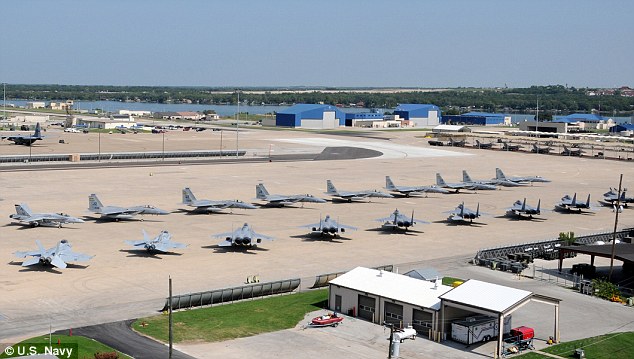The Diplomacy Cable 4/4/2016
With the invention of the telegraph cables in the 19th century, international consulates and embassies began sending shorter encrypted telegrams, using Morse Code. While the messages are now sent electronically, the moniker “cable” stuck and the term is still in use today for shorter, encrypted diplomatic messages.
What are the Panama Paper Leaks?
The Guardian offers a wonderful break down of what leaked from these “Panama Papers” . The documents show the myriad ways in which the rich can exploit secretive offshore tax regimes. Over 150 politicians, including world leaders such as Vladimir Putin, have had their assets in off seas tax havens exposed, along with multiple billionaires. There are 11.5m documents and 2.6 terabytes of information leaked from Mossack Fonseca’s internal database.
–
U.S. deploys troops to Europe
The United States has deployed 12 F-15C Eagles and approximately 350 airmen to Iceland and the Netherlands. U.S. aircraft units from the 131st Fighter Squadron at Barnes Air National Guard Base in Massachusetts and the 194th Fighter Squadron at Fresno Air National Guard Base in California will support NATO air surveillance missions in Iceland and conduct flying training in the Netherlands, according the U.S. Airforce and CNN. Iceland is the only country in NATO that does not have a military.
–
Azerbaijan ‘calls truce’ with Armenian forces over the disputed Nagorno-Karabakh region
Fighting continued through Sunday, after clashes left 30 soldiers dead and caused civilian casualties. Nagorno-Karabakh has been in the hands of ethnic-Armenian separatists since a war that ended in 1994. “Azerbaijan, showing goodwill, has decided to unilaterally cease hostilities,” the Azeri defense ministry said in a statement, reports BBC.
–
Migrants and refugees deported from the EU
Around 130 migrants, mostly from Pakistan and Bangladesh, left the Greek island of Lesbos and have been returned to Turkey, the first under a contentious deal between the EU and Turkey. Human Rights Watch’s Eva Cosse called Monday a “turning point” that could be a harbinger of a “gross violation of human rights”. “There’s no transparency for the procedures,” she said, according to NBC News. The protests around this come from the lack of transparency surrounding the deal. The United Nations has warned the agreement lacks legal safeguards and Amnesty International called it “alarmingly short-sighted and inhumane.”
“Under the deal, Turkey agreed to take back migrants that had made it to Europe from its shores. In exchange, the EU agreed to settle thousands of Syrians already in Turkey — one for each Syrian Turkey takes back from the Greek Islands.” – NBC News
–
War could occur between Azerbaijan and Armenia
International envoys are meeting to prevent a war over the disputed Caucasus region of Nagorno-Karabakh. This region is internationally recognized as Azeri territory but has run its own affairs – with Armenia’s support – for more than 20 years, reports the Irish Times. Previously, the 1988-94 war killed 30,000 people and displaced more than a million. So far, 36 have been killed in clashes since Friday.
–
Diplomacy Fast Facts:
What is NATO?
NATO is a political and military alliance of 28 North American and European countries. Founded in 1949, NATO played a unique role in maintaining stability and security in the trans-Atlantic area during the Cold War. Since the end of the Cold War the Alliance has transformed itself to meet the security challenges of the new century, continuing with adoption of a new NATO Strategic Concept at the Lisbon NATO Summit in 2010, writes the United States State Department.
If you have idea or questions that you would like discussed in our new Diplomacy Fast Facts section, please send them to Dylan Ashdown at his Twitter handle @AshdownDylan.
–
Dylan Ashdown is a second year graduate student at Seton Hall, where he is a part of the School of Diplomacy and International Relations and College of Communication and the Arts. He is pursuing dual master’s degrees in Diplomacy and International Relations and Strategic Communications. He received his undergraduate degrees from the University of Central Missouri.
Follow Dylan Ashdown on Twitter at @AshdownDylan and send any requests for stories there
Follow the Journal of Diplomacy on Twitter at @JournalofDiplo

